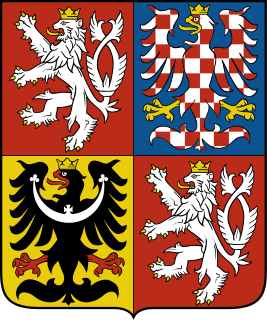The Democratic Party is a center-right party in Bulgaria led by Alexander Pramatarski. The party is a member of the European People's Party (EPP).

Parliamentary elections were held in Greece on 20 November 1977. After Prime Minister Constantine Karamanlis called for early elections, his New Democracy party suffered a significant loss of power. However, Karamanlis managed to secure an absolute majority in the Parliament. The big surprise was the success of PASOK, whose socialistic rhetoric remained radical. Because of PASOK's success, the Centrists led again by Georgios Mavros lost half of their power. As a result, Andreas Papandreou, PASOK's leader, became a prominent figure in Greek politics. The Communists and the Nationalists managed to amplify their support.

Parliamentary elections were held in Greece on 7 November 1926. The Liberal Union emerged as the largest faction in Parliament with 108 of the 286 seats. The composition of the new parliament meant that the parties and factions had to work together to form a viable parliamentary government. On Kafandaris' initiative negotiations began among the main parties, leading to the swearing-in on the 4 December of a government under the premiership of Alexandros Zaimis who was not a member of parliament. The coalition consisted of the Liberal Union, the Democratic Union, the People's Party and the Freethinkers' Party. This government came to be known as the "Ecumenical government".

Parliamentary elections were held in Greece on 31 March 1946. The result was a victory for the United Alignment of Nationalists, an alliance that included the People's Party, the National Liberal Party, the Reform Party, which won 206 of the 354 seats in Parliament. As a result Konstantinos Tsaldaris became Prime Minister leading a right-wing coalition. Nonetheless, he soon decided to resign in favor of Themistoklis Sophoulis, who led a government of national unity during the entire second phase of the civil war (1946–1949). One of the priorities of the new government was the proclamation of a plebiscite for the restoration of the Greek monarchy.
The National Political Union was a political alliance in Greece in the 1940s.
The Russian Party in Estonia was a minor political party in Estonia.
Parliamentary elections were held in Bulgaria on 19 April 1997. The result was a victory for the United Democratic Forces, which won 137 of the 240 seats. Voter turnout was 62.9%. Following the election, SDS leader Ivan Kostov became Prime Minister.
Parliamentary elections were held in Bulgaria on 18 December 1994. The Democratic Left, the core of which was the Bulgarian Socialist Party, won 125 of the 240 seats, enough to govern without the support of parties from outside the coalition. Voter turnout was 75.3%. Following the election, Socialist Party leader Zhan Videnov became Prime Minister.

Senate elections for a third of chamber were held in the Czech Republic on 13 and 14 November 1998 with a second round on 20 and 21 November.

Parliamentary elections were held in Lithuania between 8 and 10 May 1926. The Lithuanian Popular Peasants' Union remained the largest party, winning 24 of the 85 seats in the third Seimas. They formed a left-wing coalition government with the Social Democratic Party of Lithuania, which was overthrown in a military coup in December. The Seimas was subsequently disbanded and Lithuanian Nationalist Union leader Antanas Smetona was appointed President.

General elections were held in Romania in July 1932. The Chamber of Deputies was elected on 17 July, whilst the Senate was elected in three stages on 20, 24 and 26 July. The result was a victory for the National Peasants' Party-German Party alliance, which won 274 of the 387 seats in the Chamber of Deputies and 104 of the 113 seats in the Senate elected through universal male vote. Of the 274 Chamber seats, 265 were taken by the National Peasant's Party and nine by the German Party.
The United Alignment of Nationalists was a right-wing political alliance in Greece formed to contest the 1946 elections. It consisted of the People's Party, the National Liberal Party, the Reformist Party, the Royalist Party, the Panhellenic National Party, the Patriotic Union Party the Forward Political Group, the Party of Reconstruction and the Social Radical Union.

The United Labour Social Democratic Party was a political party in Bulgaria.
The Hebrew Political Union was a political party in Greece in the 1920s.
The National Democratic Party, later renamed National Radical Party, was a political party in Greece in the 1920s led by Georgios Kondylis.

The Christian Democratic Union was a political party in Lithuania.

The Independence Party was a political party in Lithuania.

The Labour Party is a minor political party in Moldova led by Gheorghe Sima.

The Agrarian Union Party was a political party in Romania.

The Agrarian League was a political party in Romania.












